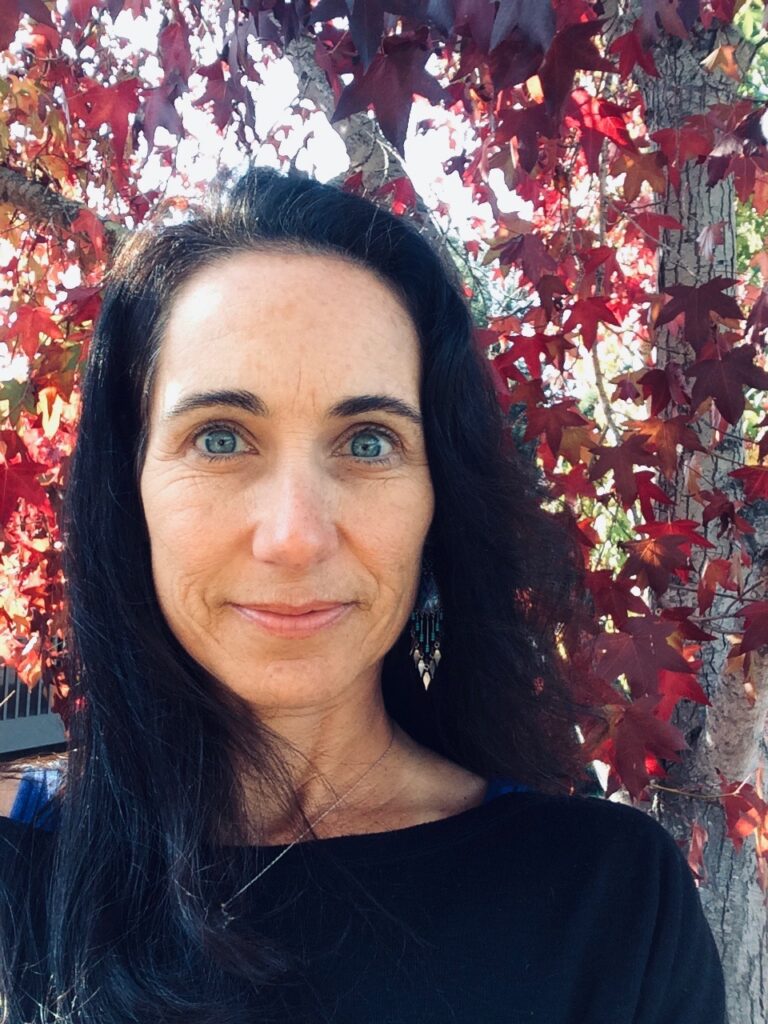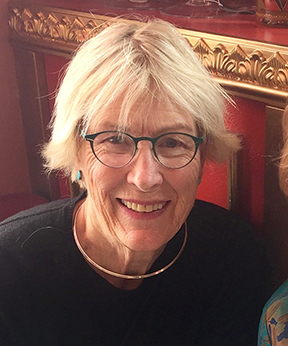
We acknowledge and honor our educators who cultivate and shape our academic community. Their stories inform and inspire, illustrating diverse pathways that led to our campus and beyond. In collecting these stories, we seek to learn with and from those who devote so much of themselves to Cabrillo College.

By Rachel Mitchel, Faculty and CCFT Council Representative
I just want to express my gratitude to our colleagues who have so generously taken the time from the multitude of teaching and non-teaching responsibilities they have right now to do these interviews with me. I hope you enjoy learning more about our wonderful colleagues and all of their contributions to our college, community, and beyond… ~Rachel

Greg Hanle
Adjunct Instructor of Economics and Culinary Arts
Greg Hanle’s journey to college instructor truly exemplifies how “Breakthroughs Happen Here.” While a student at Cabrillo, Greg was facing various personal life struggles and challenges which often made it difficult for him to complete and be successful in his courses. It wasn’t until he landed in an Economics class taught by Paul Harvell that he literally found his path, along with the inspiration to advance in higher ed so that he could join the teaching ranks of the instructors and college that had given him the opportunity, and the drive, to start anew. Greg draws on his Cabrillo success story to identify with and engage authentically with his own students, especially those searching for their path or struggling with life circumstances.
A devoted practitioner and teacher of meditation, Greg credits the introspective nature of meditation for helping him to critically reflect on and improve his teaching and support for his students. This is no small task considering Greg teaches classes in both Economics (at four campuses) and Culinary Arts which include CAHM 165: Meat Cutting & Sausage Making, CAHM 50L: the restaurant lunch course for introductory students, a sauces class, and courses through Cabrillo Extension.
When former CCFT Executive Director, Maya Bendotoff, approached Greg about serving as a council rep, he realized that he had no conflicts with the Council meeting schedule and that it would offer him the opportunity to contribute to the public good and stay connected to Cabrillo. Like many adjunct faculty members, Greg has been a “Road Scholar,” travelling to teach in multiple districts. Being active in CCFT has indeed kept him grounded and close to the college, especially now in our remote teaching and learning context. All of us can certainly relate to Greg’s sense of loss over not being in a physical classroom engaging with students. Yet at the same time, he feels very connected to students and colleagues through our shared experience in developing new skills for being online teachers and learners.
One of the challenges, of course, is finding a way to balance and compartmentalize work/life space and time. I asked Greg how he has been navigating this and if he’s cultivated some helpful self-care routines. For him, having live, synchronous Zoom classes, office hours, and meetings, such as CCFT Council, have helped to provide structure and rhythm to his days, which, although no longer spending time as a freeway flyer, has not exactly resulted in a net positive in terms of time gained for non-teaching activities. To sustain his already strong self-motivation, Greg commits to getting out of the house for at least a half an hour each day for walks along the river or beach to get a change of scenery, some movement, and fresh air. Greg is also passionate about martial arts and has been practicing Shen Ming Kung Fu for over a decade.
I am especially thankful to Greg for his reliability and commitment to shared responsibility in the union. He never misses a council meeting and always provides a detailed report out to HASS. He always brings such great energy and positivity to Council meetings. He was also super supportive of our HASS “Bring a Friend to Council” campaign over the past two years to increase member engagement with the union so our colleagues could experience first hand its commitment to ALL faculty and to encourage them to step up and serve as a council rep as Greg has done so well for so many years.

Sarah Albertson
Theatre Arts Instructor and CCFT Council Representative, Visual and Performing Arts Division
Back in the days when Cabrillo had its own locally crafted version of a “Great Teachers Seminar,” known as the Faculty Consultation Network (FCN), a handful of participating faculty would be grouped together for a semester long commitment to individually attend one another’s classes and then regroup at the end of the semester for a celebration of our peer teaching and learning experiences. The group I had been assigned to included an instructor from Math, Communications Studies, and Theatre Arts and it was there that I first met Sarah Albertson.
Like many of us who regularly attend Cabrillo Theatre Arts productions, I was already familiar with Sarah’s work, however, it wasn’t until I visited her Intermediate Improv class through the FCN, that I really got to see her in action behind the scenes. Since improv relies heavily on co-creators being keenly in tune with each other to develop a story “on the spot,” I watched as Sarah expertly created a safe and creative space for her student actors to connect with their individual and collective expressive voices through a sorting exercise in which none of the students could speak, yet had to determine their position in the group. Each student was given a card from a deck of cards and instructed not to look at it, but instead, hold it to their forehead facing outward so that it was visible to everyone else. The context they were provided was being at a “high profile” social gathering. Face cards represented high status guests, cards five and under were low status guests, and those cards in between were mid-status guests. Students walked around, card to forehead, relying on their peers’ non-verbal reactions to guide them to their status group. Once they were all sorted and everyone got to look at their card, they had successfully landed in the correct self-ascribed group. It was a fun warm-up activity that immediately got students moving and set the tone for the class. (I later adapted this exercise for use in my Biological Anthropology class to demonstrate the importance of visual communication in primate dominance hierarchies and my students loved it. Thank you Sarah!)
Sarah has led students through a number of fabulous productions during her 30 year career at the college and was instrumental in growing the Theatre program by designing courses such as TA 8: World Theatre, a class that focused on the theatre of Asia and Africa as well as Western Theatre and TA21: Acting for the Camera which drew on her background in film. When I asked Sarah to reflect on what particular productions she was most proud, she shared the following:
Homelands–Stories of Migration, performed in 1992. This show had the audience up on the stage of the old theatre. The set (designed by Skip Epperson) was made of dirt and had a wonderful feeling of a mesa- hard clay. The performers were from a highly diverse range of ethnicities. The show was composed of enactments of short stories, poetry, satirical sketches, dance, and music. The subject matter was from a range of different countries and focused on people having to flee their homes for a variety of circumstances. For example- we performed excerpts from Grapes of Wrath and from a short story called THE RETURN by Ngugi wa Thionga of Kenya.
The Visit by Durrenmatt. This production had the audience sitting in little clusters dispersed in different parts of the stage. It was a ferociously dynamic show. The Visit explores greed, democracy, and corruption and is a study in how a community can be seduced into fascism, done in an engrossing and entertaining way.
Shifting the energy and dynamics that occur in performance based classes to Zoom could be challenging, yet Sarah was delighted to find that there was in some ways, more connection between her and her students. For instance, students in her Voice and Diction class brought a delicate power to the thoughts and images in the poetry they recently performed as part of their final projects while scenes performed in acting class exhibited a depth of tenderness and connection in them. Sarah says with amazement and pride in her students, “Can you believe it? All on Zoom!”
As the curtain closes on a long and successful teaching career, Sarah hopes that Cabrillo will continue to support and sustain partnerships with the local high schools such as through the high school theatre workshops she developed called STAGE DOOR. Aside from her passion for theatre and film, Sarah is also passionate about her family, and even there, she and her husband are a team. Their last project together was The Cherry Orchard at Mountain Community Theatre in which Sarah acted and her husband, Bill, directed. In retirement, Sarah is looking forward to spending more time with her 6 month old grandson and when it’s safe to travel again, to return to Paris to teach with another film/theatre couple at their Film Institute. And of course, she is eager to return to London to watch plays—attending 18 shows in the span of 2 weeks was not uncommon for this performing arts aficionado. Bravo! Sarah for all of your artistic contributions to our college and community!
